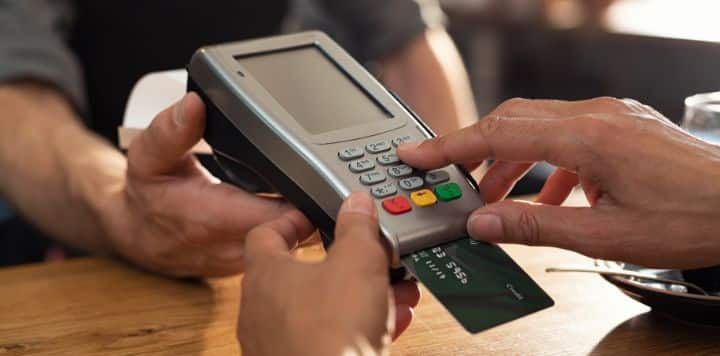Summary: When using a Forex Card for making payments abroad, an understanding of Dynamic Currency Conversion is essential. Read below to know what Dynamic Currency Conversion (DCC) is and how opting out of DCC can shield users from unnecessary charges.
Foreign travel often involves going through the intricacies of currency exchange. For instance, when it comes to using a Forex Card, understanding Dynamic Currency Conversion (DCC) becomes crucial. DCC is a feature enabled by some overseas ATMs and Point of Sale (POS) machines, providing users with the option to transact in their “home currency” rather than the local currency. Note that the decision to opt in or out of DCC can significantly impact your overall transaction costs. Here’s everything you need to know about dynamic currency conversion, and whether or not you should sign up for it.
What is Dynamic Currency Conversion?
Dynamic Currency Conversion (DCC), sometimes referred to as Cardholder Preferred Currency (CPC), is a service that allows customers to make purchases or pay for services in a foreign country using their home currency instead of the local currency. This feature is offered by banks in certain countries, particularly at ATMs and POS machines.
When you use your Multi-Currency Forex Card in these locations, the machine may recognize it as being issued from a foreign country and prompt you to make transactions in your “home currency.” This might seem convenient at first glance, however, a closer look reveals that DCC involves a type of currency conversion fee, thus leading to additional charges.
Why Opting Out of DCC is Crucial for Forex Card Users?
Whenever you make a purchase at a store or restaurant abroad, it’s natural to seek the best possible deal. Opting to avoid DCC charges while using a Forex card and choosing to pay in the local currency allows you to achieve just that, enabling you to save money by avoiding any fees associated with Dynamic Currency Conversion.
Your Forex Card is pre-loaded with foreign currency, making it crucial to avoid selecting the “home currency” option during a DCC transaction. Opting for the “home currency” prompts a double conversion charge, as the transaction is first converted into the local currency and then back into your card’s loaded currency. This unnecessary conversion can result in extra fees, affecting the overall cost of your transaction. It is essential to note that the responsibility for DCC-related charges rests with the cardholder.
Below are the three major disadvantages of Dynamic Currency Conversion (DCC):
1. Additional Fees: Service providers contracted by merchants for DCC transactions often impose their own fees. These fees may include a service charge and a markup on top of the transaction cost.
2. Hidden Fees: Merchants may not be obligated to disclose all additional fees associated with DCC. Consumers might not be fully aware of the total cost unless they independently calculate the expenses by comparing market rates to the provided exchange rate.
3. Increased Purchase Costs: Due to the extra fees involved, the exchange rate provided for DCC transactions is typically less favorable than the market rate. This results in a more expensive purchase for the consumer.
How To Avoid Paying Dynamic Currency Charges?
To protect Forex Card users from incurring additional charges, many Forex cards are pre-configured to decline DCC transactions automatically. This means that if a POS or ATM abroad offers you the choice to pay in your “home currency” or the local currency, the card will automatically decline the DCC option. This proactive approach is designed to save cardholders from unknowingly incurring double conversion fees.
However, in the event that your Forex card is not preconfigured to reject DCC transactions, you may still opt-out at any time. Declining Dynamic Currency Conversion (DCC) is a simple process – just say no when presented with the option at a store, restaurant, or ATM in a foreign country. By rejecting DCC, you guarantee that you won’t be paying more than necessary while using your Forex card abroad.
Conclusion:
When traveling abroad, it is typically more cost-effective to use a forex card that facilitates transactions in the local currency. While dynamic currency conversion, offering the option to transact in your home currency, might seem convenient, it often comes with substantial additional expenses. If the DCC option is chosen at enabled terminals, the transaction undergoes cross-currency conversions twice, resulting in double currency conversion fees. So while using a Forex Card abroad, it is strongly advised to opt out of Dynamic Currency Conversion.





























Leave a Reply